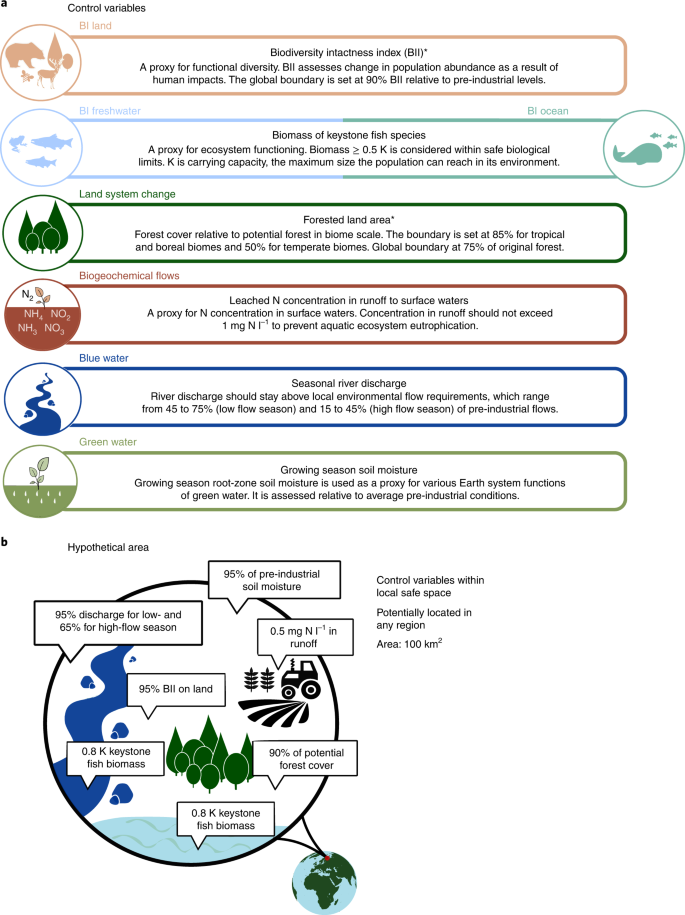Food production impacts Earth’s natural processes
Food production impacts Earth’s natural processes
Food production is already one of the biggest stressors to our planet, but it’s made substantially more challenging by the interaction of Earth system processes
Australian National University
Earth system processes refer to the natural activities that keep the planet in a habitable and useful state. This includes processes occurring in the different biospheres like carbon sequestration in forests or nutrient run off into freshwater systems.
The interactions between these processes challenge their boundaries, and effect how well they function.
“Food production is a major cause of environmental stress, impacting on biodiversity loss, the climate and overexploitation of marine resources,” co-author Dr Steven Lade from The Australian National University said.
“We need to start producing food in a sustainable way. By assessing the interaction of Earth system processes we can ensure they are considered when designing and implementing food production and agriculture policy.”
The research, led by Aalto University in Finland, examined and characterised various Earth system processes, highlighting how they can be used when working toward more sustainable food production techniques.
The study highlighted several pivotal interactions that are often overlooked, including the impact of green water on food production and biodiversity.
“Green water refers to the water stored in soil that is available for plants to grow. It has a central role to play in interacting with, and regulating all the other processes like land, biodiversity, and water flow,” Dr Lade said.
“Ensuring we address these various interactions will require action. We need better communication, meaning that authorities responsible for areas like agriculture policy and marine policy need to talk to each other.
“We need to take a holistic approach when it comes to managing sustainable food production so that it doesn’t strain the boundaries of our natural systems. We need to look beyond just water and land as inputs for food production.”
The researchers argue challenges stem from a high density of interactions between the ocean, fresh water and land biospheres.
“Acknowledgement of these interactions and boundaries is needed for maintaining stability and resilience in the Earth’s system. In some instances, human pressures may have already pushed the Earth system beyond the safe operating space for humanity,” Dr Lade said.
“System interactions make sustainable food production more challenging. However, the interconnected nature means taking positive actions can have extensive flow on effects.”
The study has been published in Nature Sustainability.

The control variables for each of the Earth system processes used for the elicitation purposes. Control variables indicated with an asterisk are the same as defined in ref. 7. For control variables without existing boundary values, safe ranges were developed and set (Supplementary Section 2). b, A hypothetical area of 100 km2 with control variables within safe ranges was used to assess the interactions among the Earth system processes relevant to food production by experts in this scenario-based elicitation. In “Quantifying Earth system interactions for sustainable food production via expert elicitation”, Nature Sustainability (2022)
More information: Anna Chrysafi et al, Quantifying Earth system interactions for sustainable food production via expert elicitation, Nature Sustainability (2022). DOI: 10.1038/s41893-022-00940-6
in EcoDebate, ISSN 2446-9394
A manutenção da revista eletrônica EcoDebate é possível graças ao apoio técnico e hospedagem da Porto Fácil.
[CC BY-NC-SA 3.0][ O conteúdo da EcoDebate pode ser copiado, reproduzido e/ou distribuído, desde que seja dado crédito ao autor, à EcoDebate com link e, se for o caso, à fonte primária da informação ]